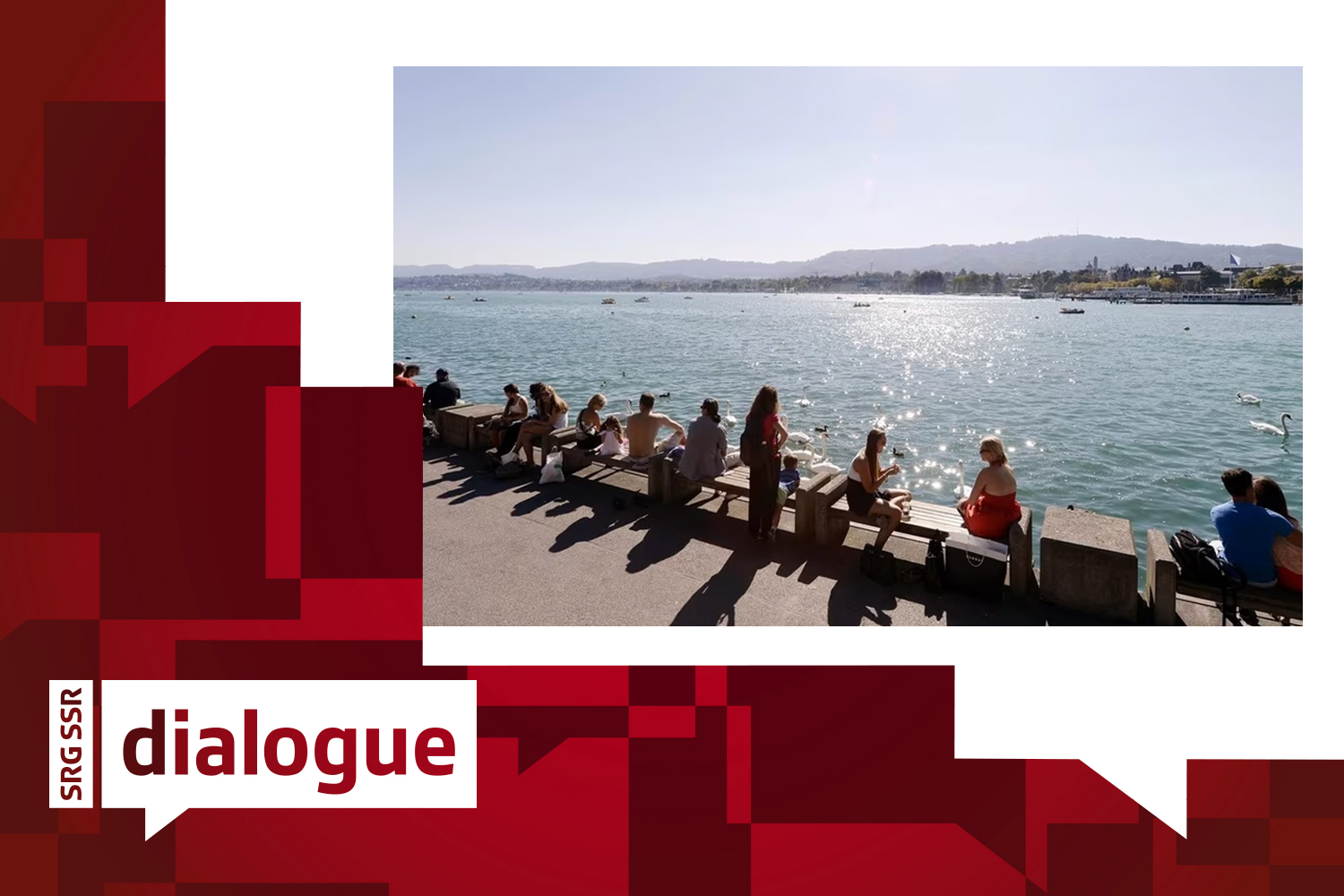
Democracy Monitor 2023: half of citizens unhappy with Swiss politics

A nationwide survey reveals that citizens are divided over Swiss politics: while there is appreciation for the system of direct democracy, there is dissatisfaction and pessimism about the future.
When it comes to Swiss politics, most citizens agree – across the political spectrum – that the people who are the most provocative get “the most attention and not those with the best political ideas”.
Citizens are also concerned about increasing political polarisation. Most supporters of political parties sense an increasing fragmentation of Swiss society “into irreconcilable small and micro groups” and see it as “increasingly impossible to find overarching majorities for compromises”.
This feeling is particularly strong among voters of the right-wing Swiss People’s Party (70%), but supporters of The Centre party also agree (64%), compared with 59% of centre-left Social Democrats and 56% of Greens.

More
Does social media fuel fake news in Switzerland as much as in the US?
These are two of the more striking conclusions of the Democracy Monitor 2023, a nationwide survey of 6,000 Swiss citizens carried out by the gfs.bern research institute and the democracy thinktank Pro Futuris, released on Sunday.
Urs Bieri, co-director of gfs.bern, calls the Democracy Monitor “a new type of population survey” that also considers adults without a Swiss passport, young people over 14 and underrepresented groups with a “low level of formal education or dissatisfied people”.
The survey was published in connection with the 175th anniversary of the Federal Constitution on September 12, with the underlying question: is Switzerland on track for the 200th anniversary?
The answer is yes – and no.
On the one hand, there is broad approval of political rights in Switzerland. A total of 85% of respondents said they were satisfied with the opportunities to participate in Swiss democratic processes. The public also appreciates the inclusion of minorities (81%) and the strong federalism (71%).
But 46% of people said they were “rather” or “very dissatisfied” with Swiss politics in general. They included people from all age groups, educational levels and language regions, and from both rural and urban areas.
Switzerland ‘incapable of presenting solutions’
The poll found differences according to people’s political tendencies, however.
A total of 10% of respondents said they did not support any specific political party. Of these, three-quarters (74%) said it was because they were dissatisfied with Swiss politics.
Meanwhile, two-thirds of People’s Party voters said they were dissatisfied with Swiss politics, compared with one-third of Social Democrat and Green voters. At the same time, disgruntled respondents said they valued political rights, and nine out of ten said they were interested in politics. But they see Switzerland as incapable of presenting solutions: four out of five think little of Switzerland’s ability to find political solutions.
By contrast, 59% of the 6,000 respondents rated Swiss politics positively; and 71% felt that populism was dominant.
Looking to the future, pessimism reigns: 46% of respondents say Swiss politics reacts poorly or rather poorly to major challenges, such as reforms to the pension system or dealing with the climate crisis.
The social gap, the power of lobbies and inclusion
Two-thirds (67%) of respondents say they are especially unhappy with the imbalance between the rich and poor in Switzerland, stating that equal opportunities are not being achieved. This was the view of most supporters from all parties, except among the centre-right Radical-Liberal Party.
Voters for the Greens, Social Democrats and People’s Party highlight the major influences of lobbyists, the wealthy and business groups on politics. The vast majority (85%) of People’s Party supporters also no longer believe in the independence of the media and see journalism as an “accessory to politics”.
A high proportion of respondents are unfamiliar with the issue of inclusion of people with disabilities in Swiss politics, while only 42% are satisfied with the status quo concerning disability inclusion.
At the same time, a majority (52%) of respondents are happy that people without a Swiss passport cannot vote in most cantons and municipalities. In 2022, the proportion of foreign residents in Switzerland stood at 26%.
Despite critical assessments of the status quo, only a quarter of respondents believe the Swiss political system will change in a good way.
Edited by Marc Leutenegger

More
An idyll with cracks: a survey on the Swiss state of mind

In compliance with the JTI standards
More: SWI swissinfo.ch certified by the Journalism Trust Initiative
































You can find an overview of ongoing debates with our journalists here . Please join us!
If you want to start a conversation about a topic raised in this article or want to report factual errors, email us at english@swissinfo.ch.